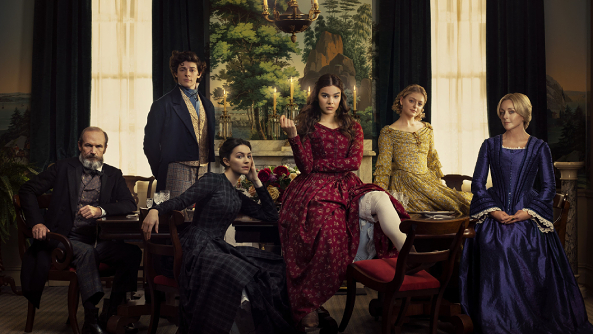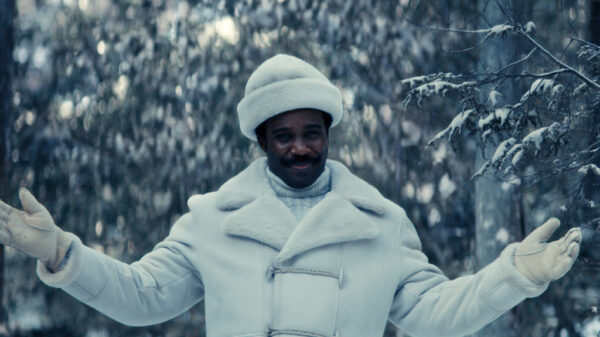Over the course of three seasons, Apple TV+’s biopic dramedy series, Dickinson, has managed to rewrite and revamp the history of one of America’s most beloved poets, Emily Dickinson (Hailee Steinfeld). Creator and showrunner Alena Smith, along with the Dickinson cast and crew, has delivered cinematic perfection, dazzling acting performances, and extraordinary story-telling using much of Emily’s nearly 1,800 poems to reimagine her life in mid-19th-century United States. Smith and her diverse team of writers seamlessly sewed together the poet’s life story in a way that inventively demonstrates Emily’s intellectual prowess and introspection and artfully analyzes her mind, emotions, and connection to the world that surrounded the writer and beyond. Every episode is to be ferociously consumed and contemplated by viewers young and old – a tactically sculpted masterpiece of television incorporating relevant symbolism, parallels, and social commentary as it relates to gender, sexuality, race, and socioeconomics.

Perhaps the most imperative aspect of Dickinson is that the period piece has been instrumental in a revision of Emily’s life acquainting the modern world with a profound and enigmatic poet who fiercely pushed the boundaries of traditional social constructs and heteronormativity enforced by a patriarchal and pro-Christian America. Like unlacing a corset of societal constraints, Smith and the provocative Dickinson have unshackled Emily from the confines of homophobia, sexism, and patriarchal oppression that she endured and challenged over her lifetime. Apple TV+’s original series has given Emily autonomy and ownership over her authentic truth and the legend that the poet deserves – with acknowledgment as a queer woman contributing to literature – as the greatest poet America has ever seen.
Thanks to Alena Smith and modern scholars – the vast majority being women – Emily Dickinson’s fictitious portrayal as a dejected, agoraphobic woman has been dismantled, dispelled, and replaced with the actuality of a 19th-century feminist lesbian poet who provides her readers with lyrical language serving as a bridge between the cerebral and the visceral boldly juxtaposing the darkest and most joyous bends of nature, love, life, and death. Smith’s revolutionary retelling of Emily takes on the systemic erasure of lesbian-queer women in America’s history of literature and art, delivering perhaps the greatest gift of all – a history for today’s lesbian and queer women (i.e., bisexual women) to belong to, be inspired by, and take pride in.
RELATED | “Dickinson” Season 3 Review: Fans Are in For the Wildest Ride Yet
For years, the prolific poet was falsely personified by academics, biographers, publishers, and literary consumers alike as a reclusive spinster who died of heartbreak by unrequited love for an unidentified man – the real truth of Emily’s love life was always present in her writing. Early publishers of Emily’s work as well as members of the writer’s family physically erased and redacted her best friend and lover, Sue Gilbert Dickinson (Ella Hunt), from the hundreds of letters and poems inscribed to, written about, and inspired by Sue. Emily and Sue’s romantic relationship was censored and her writing was mutilated for no other reason than to appease a homophobic, sexist society and to profit off of a deceased woman’s mind and body. To describe this atrocity as “shameful” grossly understates the dishonor and disservice done to Emily’s enduring legacy, and it doesn’t begin to reconcile the blatant, strategic erasure of the lesbian and queer women community in American history.
Like the French philosopher and political activist Simone Weil once concluded, “to be rooted is perhaps the most important and least recognized need of the human soul” (The Need for Roots, 1949). Recognizing Emily Dickinson (and Sue Gilbert Dickinson) as a queer woman grants the lesbian-queer women community a plot in early America to which they can discover roots in and thereby nourish their inclusion and acceptance in a society that has otherwise censored and diminished their existence. From these roots will bloom a sense of belonging and a desire to flourish and contribute to the surrounding world. Showrunners, creators, and producers should take note of Alena Smith’s Dickinson and continue the work in correcting historical record by using television and film as a vehicle for visibility and accurate representation of lesbians and queer women throughout American history. We must continue to confront and combat the systemic erasure, misinformation, and prejudice that has affected the lesbian-queer women community for centuries, giving witness as more women cultivate, grow, and thrive in an America in which they are seen, heard, and valued.
Dickinson is available to stream only on Apple TV+.


